|
Kenichi talked about an acquaintance's domestic situation, and the issue of how much to help elderly parents. Too much help risks them losing independence and physical skills that they could otherwise maintain through use, hopefully prolonging their active and independent life. It's the same situation that confronts parents when bringing up children; how much to let them experience for themselves, and how much to fill the gaps in their growing knowledge and help them maintain progress at a rate comparable to their peers? When you were growing up, did your parents give you the right amount of guidance and support? Or, did they help you too much? If you have children yourself, did you get the balance right? Words and usage: 'how to....' Question words can often be used with 'to' to describe an unknown person, place or thing that can fulfill a need. For example, if you need to find out information but can't find the source, you need to where to look, or who to ask. If you need information connected to a time commitment, you need to know when or where to go, and perhaps who to see. If you need advice about a purchase, you may need to ask which to buy. Other forms and uses can be found at Oxford Dictionaries. More examples and explanation can be found at The British Council website. Practice: Write and say out loud 5-10 situations you had recently where you needed more information. Make sentences to describe them, such as 'I asked the bus driver where to get off for the sports park,' Quiz Me! Conversation card: Card F4 below is from General Level 1, pack 1. Available to buy at englishbooks.jp #子供 #英会話
0 Comments
The time of year has come again when children don their p.e. kit and step out in front of expectant parents to give their best efforts in the school sports event of the year, Sports Day! In England, Sports Days are usually held on a weekday afternoon, and in my youth the events were many and varied. The 100-metre sprint was a favorite for competitive types who could show their speed and gain the coveted first prize. A 100-metre relay and 400-metre race were also possible in my hometown as the grass covered playing fields were very large. Less serious events held in elementary school included the egg and spoon race, sack race and three legged race. The egg and spoon race involved balancing an egg-shaped stone on a dessert spoon while trying to run as carefully as possible. It wasn't only about speed, but balance and concentration skills, too. The sack race was an opportunity to display serious energy and balance by jumping all the way to the tape while standing in a bag up to your waist. The three legged race was about co-ordination as two people had to run together with their closest legs strapped together. Go at the same speed and you would have a good chance of winning, but get the timing wrong and both runners would likely fall in a heap on the floor. #大人 #英会話 Words and usage: 1, involve + gerund (....ing), which is a noun to describe an action. The gerund has no time expression. The example, 'The egg and spoon race involved balancing.....' 2, (be) an opportunity to + verb. The example, 'The sack race was an opportunity to display.....' Other forms and uses can be found at Oxford Dictionaries. More explanation can be found at The British Council website. Practice: Choose 2-3 events that you remember and describe them using the above words. Quiz Me! Conversation card: Card A3 below is from the new Student pack 1, which will be available soon from englishbooks.jp #大人 #英会話
An unusual topic surfaced this week when looking at an event in history.
Did you know that an international treaty, originally signed by 30 nations but now by 77, that bans weather warfare, was signed this week in 1978. "Weather warfare? What's that?", you say! It was first used by the US Army in the Vietnam War at great cost, and with unclear results. Firing chemical bullets into the sky to cause the formation of clouds, known as cloud seeding, was a technique used to try and induce the rainy season earlier than expected. The hope was that the wet and muddy conditions on the ground would make it difficult for opposing forces to make gains, putting the US Army at an advantage. More recently, the Chinese were said to have used similar methods to make the Olympics in 2008 a dry one! Words and usage: when It's a question word we all know, which in simple English form means 'at what time?', but it is also used as a conjunction meaning 'at the time'. This conjunction is usually followed by a less important clause. It can appear at the start of a sentence before the main clause, or after it. Other forms and uses can be found at Oxford Dictionaries. Grammar point: 'were said to have used...' Looking back at a past time from a past time point, we can use this for passive forms when talking about others' actions. 'Be....' can also followed by 'said', 'known', 'reported' and 'believed'. More explanation can be found at The British Council website. Practice: Tell us what you would change about the weather, and explain how you think you could achieve it. Quiz Me! Conversation card: Card A5 below is from General Level 2, pack 1. Available to buy at englishbooks.jp #大人 #英会話 Sonoe talked at lunchtime about the uneasy situation in the Spanish region of Catalonia, which held an unofficial referendum last weekend. The turnout was 42%, of which 90% voted 'for', which could be seen as only the most fervent 38% of the whole Catalonian population. Does this mean that the other 58% who didn't vote were mainly opposed to change? If so, that would mean that the independence vote would not have been won by the proponents.. Words and usage: Turn out Turn out is a noun and verb meaning the number of people who go to a place to do an action, in this case, going to a voting station to cast their vote. Other forms and uses can be found at Oxford Dictionaries. Grammar point: 'Be mainly opposed' Adverbs can tell us the size of the part of a total. This may be a number, volume or frequency. 'Mainly' means a part larger than half, perhaps up to 90%. For example, if the weather forecast says it will be mainly rainy tomorrow, we can expect most hours of the day to be wet! Adverbs with similar meaning include mostly and largely. An antonym example is partly or slightly. More explanation can be found at The British Council website. Practice: Write about the question 'Do you think your region could become independent?' Quiz Me! Conversation cards, available to buy at englishbooks.jp #大人 #英会話
On 3rd October in history, the first facsimile was sent through a phone line in the USA. Would you believe that this event happened in 1922! Amazing!
I remember having a fax machine at an office where I worked many years ago. It was left switched on overnight, in the same way an answerphone is to pick up messages. Unfortunately, the technology was not so advanced then and advertising companies used to send the equivalent of spam mail in the form of long faxes of adverts. One morning, I came in to find 20 pages of adverts like a toilet roll all over the office floor. The boss ordered us to switch off the phone every night after that! What now old technology do you remember using in the past? Do you still have a fax machine at home or at work? How often do you use it? Words and usage: 'Order' has a strong meaning in English, usually associated with high authority, for example, in a military situation when a commander gives an order to soldiers. We often use 'ask' when we request something from someone. A more formal word we might use is 'instruct', or if reconfirming an instruction strongly, perhaps 'specifically instruct'. Other forms and uses can be found at Oxford Dictionaries. Grammar point: 'Remember ......ing' Looking back on a past situation, we often use the gerund (ing form) with 'remember' to say that the memory is now. The gerund form has no time expression (past, present or future) and is purely the name for an action. More explanation can be found at The British Council website. Practice: Write about past and present technology you use, and describe the differences. Quiz Me! Conversation card: Card F7 below is from General Level 1, pack 2. Available to buy at englishbooks.jp #大人 #英会話 Miki's father submitted a suggestion for a name for the new panda at Tokyo's Ueno Zoo by online poll. Unfortunately, he wasn't successful.
Have you ever entered a competition, poll or ballot online, or by post? And, were you successful? I was lucky to win tickets to see finals games at Wimbledon back in 1989. Here is a link to the article. www.japantimes.co.jp/news/2017/09/25/national/baby-panda-ueno-zoo-named-xiang-xiang/#.WdBNS0yB2jQ Words and usage: What is the difference between competition, poll or ballot online? Well, a competition is where you compete against other entrants to win a prize by giving a better answer, idea or piece of work, such as a drawing. A poll is where you give your opinion on a topic, hoping that your answer will be the most popular. A ballot is a secret poll where names go into a pool from which a smaller number will be drawn as lucky winners, for example, of tickets to an event. Other forms and uses can be found at Oxford Dictionaries. Grammar point: 'Have you ever.....' The perfect tense is the name of the grammar often used to convey one of two points about an action; 1, how many times it has happened, and 2, over what time period. Present perfect is used for things which started in the past and are continuing in the present or still have an effect now. 'Ever' means since you were born or since something started. For example, 'have you ever been to an opera?' More explanation can be found at The British Council website. Practice: Write about an idea you have for your city or workplace, or a new product. Quiz Me! Conversation card: Card F7 below is from General Level 1, pack 2. Available to buy at englishbooks.jp #大人 #英会話 Michiko saw one of the new articulated buses, also known as a 'bendy bus', running around in Fukuoka. There are three in service in Fukuoka, and now they operate from the Noko Ferry early in the morning.
In case you are not aware, they are the elongated buses that are in two parts divided by a flexible section in the middle, hence the humorous name. The reason for using such long buses is their bigger capacity, which gives higher revenue during rush hour and greater cost savings over normal sized buses, drivers and fuel. She really wants to ride on one! Have you ever ridden on one? Do you seek out new experiences, whether something like this, or going to new shops or restaurants? Words and usage: 'Hence' is another much shorter way to say 'which is the reason for'. Another example, 'the A team lost the final game, hence the sad faces'. Other forms and uses can be found at Oxford Dictionaries. Grammar point: Comparatives 'Bigger', 'higher' and 'greater are all adjective plus 'er' combinations, which say that something is different (perhaps greater or lesser) when compared to another thing. In this case, the 'other object' is a normal sized bus. We usually replace the 'er' form with 'more' or 'less' plus adjective, where the adjective has 2 or more similar syllables in its sound. For example, 'fast' has one syllable, hence 'faster', whereas 'beautiful' has three, which is why we say 'more beautiful'. More explanation can be found at The British Council website. Practice: Look at the local English information page on the internet, and find a few events that interest you. Compare them to other events you know using the comparatives we talked about above. Quiz Me! Conversation cards. Available to buy at englishbooks.jp #大人 #英会話 Do you know a good, local engineer to go to when an electrical device breaks?
Hiroshi's hi-fi stopped working, so he took it to a local shop. The engineer was experienced and competent, but was unable to repair it. Instead, he kindly lent Hiroshi a spare CD player until he could buy a new one. Words and usage: 'stop working' is usually used for electronic devices or machines, such as electrical appliances, computers, tablets or mobile phones. For big mechanical things like cars or trucks, in the UK we often say 'break down'. Other forms and uses can be found at Oxford Dictionaries. Different informal phrases we might use include 'blow up' and 'die'. Grammar point: 'stop working''. In this case, the hi-fi always worked when it was switched on, so its service was continuous (...ing), ......until it stopped working. We can also use this form for other continuous actions by people, such as driving, smoking or playing computer games, which we may start or stop doing for reasons of time, money or health. More explanation can be found at The British Council website. Practice: Think of things you have at home that have stopped working in the past, or activities which you stopped doing. Write a short topic about it. Quiz Me! Conversation card: Card A1 below is from the new 'Fortunately' game pack. (to be released 2018) (Future) Available to buy at englishbooks.jp #大人 #英会話 Izumi was absent last week as she was visiting Italy.
Her trip took in Roma and Firenze, visiting places such as the Vatican, the Colliseum, the Pantheon and the Uffizi Gallery. Have you been to Italy? What was the most impressive place you saw? Izumi asked which place(s) we would like to visit again, if we had the chance. How about you? Here is a link to the Italian Tourism Authority website (in English). Vocabulary: 'take in (places)' means to visit or see. Other uses of 'take in' can be found at Oxford Dictionaries. Grammar point: 'Izumi was absent last week as she was visiting Italy.' Past continuous is used to say what was happening at a particular time point in the past (last week's regular lesson time). More explanation can be found at The British Council website. Practice: Look at photos of people on your phone and make sentences to say what they were doing at the time you took the picture. For example, 'she was smiling at the camera'. Action: Why not write about a recent trip you made overseas Quiz Me! Conversation card: Starter pack, C2 Available to buy at englishbooks.jp #大人 #英会話  Rina talked this morning about a pair of shoes she bought on the internet. Unfortunately, they were the wrong size and didn't look like the image in the advert. If you bought something online or in a shop, but it wasn't what you wanted, would you take it back and ask for a refund or just keep it? Do you have anything at home now that you've been meaning to take or send back? One day soon, I'll take back those two shirts that don't fit! |
AuthorAn Englishman living in Japan who describes himself as a 'Conversation Encourager'. ArchivesCategories |
||||||||||||||||||
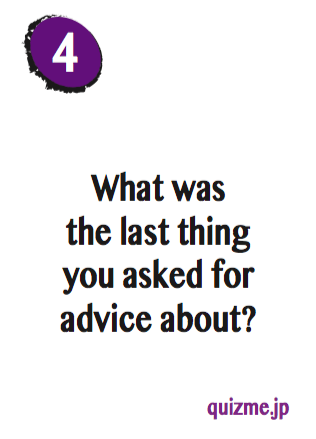

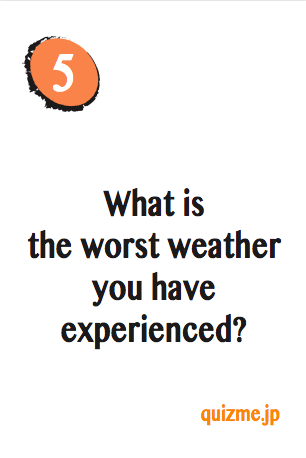
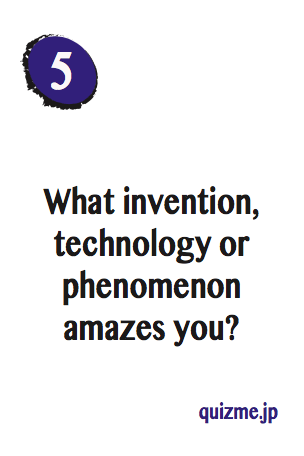

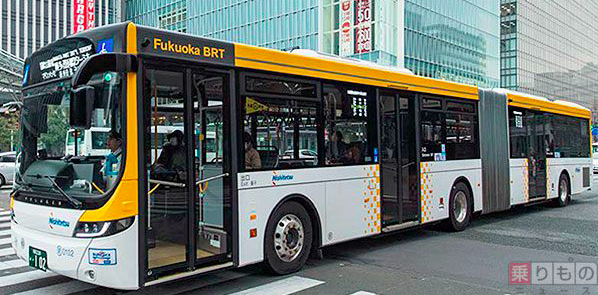

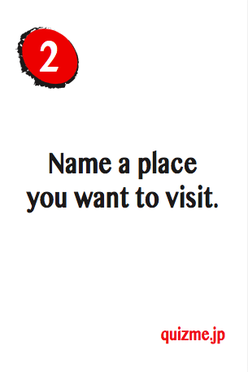
 RSS Feed
RSS Feed